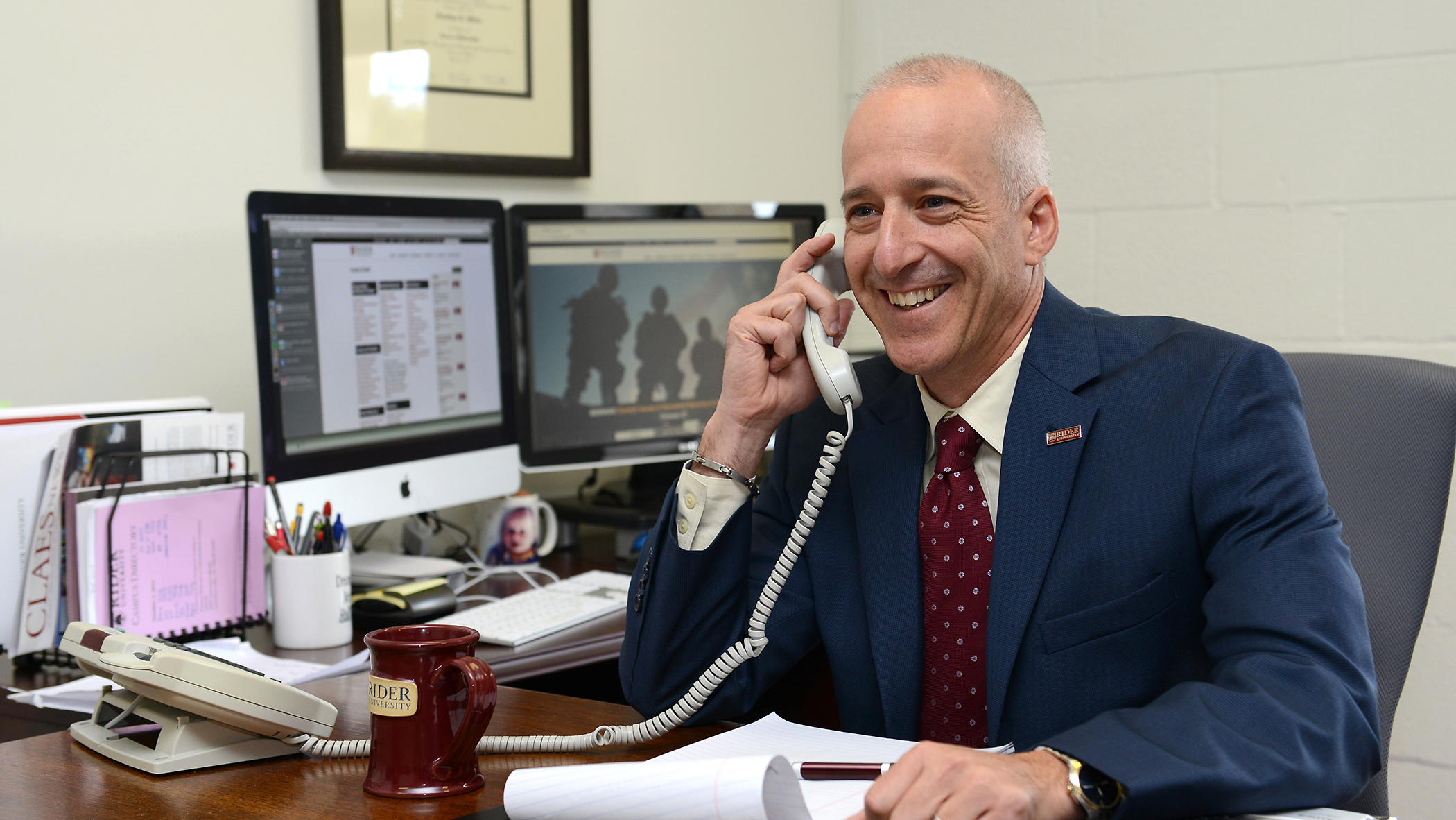Tuesday, Apr 25, 2017
Changes happening at the College include a new associate dean and academic programs
by Adam Grybowski
Not even a full academic year into his tenure as the dean of Rider University’s College of Liberal Arts and Sciences (CLAS), Jonathan Millen is already making an impact.
He has overseen the creation of several new programs and served as the chair of the Academic Excellence and Engaged Learning Working Group for the University’s forthcoming strategic plan. Now he is looking ahead to the Colleges’s next strategic plan and the implementation of the new Engaged Learning Program.
Millen also is looking forward to rounding out his leadership team. In the fall of 2016, Eileen Gurwitz became the assistant dean and as of June 1, 2017, Dr. Kelly Bidle, a professor in the Department of Biology and Behavioral Neuroscience, will become the associate dean.
Millen recently took the time to discuss these issues and more.
What contributions do you envision new Associate Dean Kelly Bidle making at CLAS?
Kelly brings an impressive array of leadership skills to my team. She is a gifted, data-driven problem solver who has earned the respect of the entire campus community for her dedicated service to Rider. Students, staff and faculty in CLAS will benefit from the experience and insight she brings to her new position. Even more, with her background in biology, she will be critical to our planned growth in the sciences.
Several new programs have recently launched within CLAS, such as computer science, health sciences and healthcare policy. What role do these new programs play in the future of the College?
Our new programs have been designed to meet student and employer demands. While building on the same foundational education that all CLAS students receive, these new majors have an applied focus addressing growth areas in the market. I think there is a false dichotomy between liberal arts degrees and degrees that prepare students for lucrative careers; these new programs are evidence of this.
What are the major criteria you and the University use in developing these programs?
Most importantly, we are looking to develop the kinds of programs that will inspire our students while they are on campus and prepare them for success after they graduate. These new programs are the result of tireless work by the CLAS faculty who consult with experts in their fields to create the curricula that align with disciplinary standards.
In what ways can CLAS expect to benefit from the University’s upcoming strategic plan?
As soon as the University's Strategic Plan is adopted, CLAS will begin work on its own strategic planning initiative. Beyond ensuring alignment with the rest of the University, this process will challenge us to envision our collective growth and create the necessary initiatives to realize our goals.
The first step will be to review the last strategic plan and assess where we succeeded and where we fell short. In the fall, we will assemble a task force that will include faculty, staff and students from across the College, as well as CLAS alumni, to begin working on our next strategic vision.
What is the status of the advisory boards in CLAS?
In my first year as dean, I merged the Liberal Arts Advisory Board (LAAB) and Science Advisory Board (SAB) into a single body. The goal was to create a singular focus on our students regardless of disciplinary orientation.
The next step is to transform that unified board into what I will be calling a Dean's Leadership Council (DLC). The chief objectives of the DLC will be to promote the centrality of the liberal arts and sciences at Rider University, support innovative faculty research and teaching initiatives, and direct our ongoing efforts to renovate our learning spaces.
I also expect the DLC to have a voice in the college's strategic planning process. Anyone interested in taking a leadership role in these endeavors, or nominating others to do so, should feel free to reach out to me directly.

